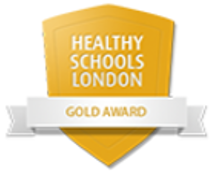Pupil Welfare
The purpose of this information is to help us maintain a safe and healthy environment for all children within our care here at Sudbury Primary School.
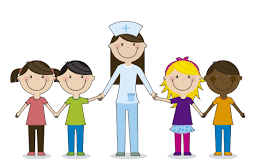
Meningitis - Don't Ignore the Signs
What happens if my child is ill at school?
If your child becomes ill at school his/her condition is brought to the attention of one of the Welfare Team.
A decision is then taken based upon the symptoms presented for example any visible signs, child’s body temperature or information based on any existing condition, as to whether you are immediately informed or whether continued monitoring of the child should occur.
Should your child’s condition deteriorate you will be contacted by a member of the Welfare Team and actions will be agreed.
What happens if my child is ill at home?
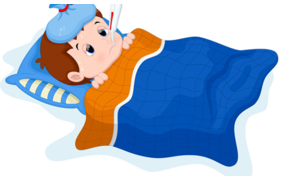
Depending upon the symptoms you may have to consider keeping your child at home your child from school. You may also need to consider if the illness they are presenting with is contagious e.g. chicken pox, vomiting bug.
Should you assess your child and believe them to be well enough to attend school we do require that you notify us of any illness that has occurred. This ensures that the Welfare Team is able to monitor your child for any signs of reoccurrence. In extreme cases this will also ensure any symptoms of infectious diseases are picked up early and managed effectively.
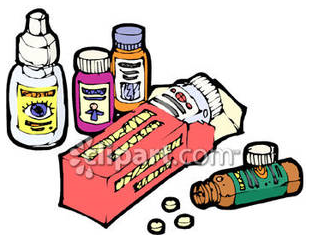
Medicines
The Welfare Team are able to administer prescribed medicines in accordance with the school’s Medical Conditions policy if your child has been prescribed them. You can read this policy on the school’s website. Please ensure you complete the necessary paperwork and discuss with the Welfare Team your child’s illness, dosage & frequency and any possible side effects your child may have from the medication.
Following advice from Public Health England we also recommend that all children follow the ‘Routine childhood immunisation programme’. This reduces the risk of exposure to children in our care of infectious diseases.
Encouraging a happy and healthy lifestyle
You can help support infection control by following the guidance and encouraging good personal hygiene. Good personal hygiene helps us all to stay healthy, free from illnesses and feel good about ourselves.
Children need to be reminded to:
- Wash their hands with soap
- Cover their mouth when they cough
- Use a tissue when they sneeze and dispose of used tissues in a rubbish bin
- Brush their teeth
- Keep finger nails tidy and clean
- Bath/shower regularly
Use deodorant/antiperspirant when they reach around 9 -10 years old as their body starts to develop

Healthy Eating

Having a healthy breakfast gives children the energy they need to handle their busy days. Eating a healthy breakfast not only has long term health benefits but can help children boost their attainment and behaviour. Our bodies need the right fuel to help us work at our best so starting the day with a healthy breakfast is important.
We also suggest pupils bring a bottle of water to school which they can drink throughout the day. You may also provide your child a snack for breaktime however this must be a healthy snack such as a piece of fruit, baked crisps or chopped vegetables. Please not snacks containing nuts are not permitted due to allergies.
For fun ideas and advice on healthy eating click on the link
Head lice and nits
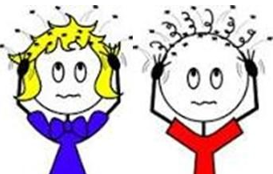
It is important to check your child or children's hair on a regular basis to ensure that they are free of head lice or nits. Should you come across headlice or nits then these must be treated immediately.
Protecting your Child Against the Flu – Information for Parents
Letter - Inviting Parents to Consent for Nasal Flu
PHE Protecting your child against flu leaflet information for parents
Coronavirus
As I am sure you are well aware there is a lot of information in the media about the new coronavirus to the point where we might wonder what are the actual facts.
The government has issued information to ensure the public stay informed with regards to this virus.
https://www.gov.uk/government/news/coronavirus-public-information-campaign-launched-across-the-uk
Top tips on how to keep your child healthy at school
(from The Education Hub, gov.uk)
For many, the start of the school term will mean mixing with different groups of people, which is why the autumn term is also known for its colds and bugs.
While it’s usually safe for parents and carers to send their children to school with mild illnesses, like a minor cough, runny nose or sore throat, there are steps you can take to ensure your child is better protected against illnesses, so they don’t miss out on vital time in school.
Here we take you through what you can do to reduce the chances of your child getting ill.
Make sure your child is up to date with their vaccinations
Childhood infections like measles and whooping cough are rising, with outbreaks across the country.
These infections can have a huge impact on your child’s life, including missing out on school due to illness, being hospitalised, and even experiencing life-long complications and disability.
The best protection you can give your child is to get them vaccinated. If your child isn’t vaccinated, they’re not protected.
It is important for parents to take up the offer of the NHS’ free childhood immunisation programme as soon as they are offered ensure your child has the best protection.
However, if you or your child have missed a vaccine, it’s never too late to find out if you can catch up.
Parents and guardians should check their child’s Red Book to find out if they have missed any vaccines or contact their GP if they are unsure.
Remind your child of basic hygiene measures
Some basic hygiene practices go a long way in preventing infections. Remind your child to:
- Wash their hands for at least 20 seconds using soap and water.
- Use tissues for coughs and sneezes then throw them in the bin.
- Avoid touching their face, particularly their eyes, nose and mouth.
You can use the free e-Bug resources to explore hygiene topics with your child.
Know when your child is too ill for school
It’s usually safe for you to send your child to school with mild illnesses, like a minor cough, runny nose or sore throat. However, children should stay at home if they have a high temperature of 38C or above.
The NHS has published guidance to help you decide whether your child is well enough to attend school, including information on a range of common childhood illnesses and conditions, such as coughs, colds, chickenpox, measles and headlice.
What can schools do to ensure they’re prepared for seasonal illness?
Basic hand, respiratory and cough hygiene measures have a big impact on reducing the spread of illness. You can find more detail on these in the guidance on preventing and controlling infections.
This autumn term, all school children in England (from reception to year 11) will be offered a flu vaccination in school.
This can help protect children against flu, reduce absence and reduce transmission within the community – including the likelihood of teachers catching flu from pupils.
Here’s where you can find the updated flu guidance for primary and secondary schools.
Secondary pupils are also offered the HPV vaccine in year 8, MenACWY vaccine in year 9, three in one teenage booster in year 9 and MMR for children who haven’t already been vaccinated.
These vaccines help protect young people and the wider community against serious illness at a time when we are seeing the return of vaccine preventable illnesses circulating amongst the unvaccinated.








